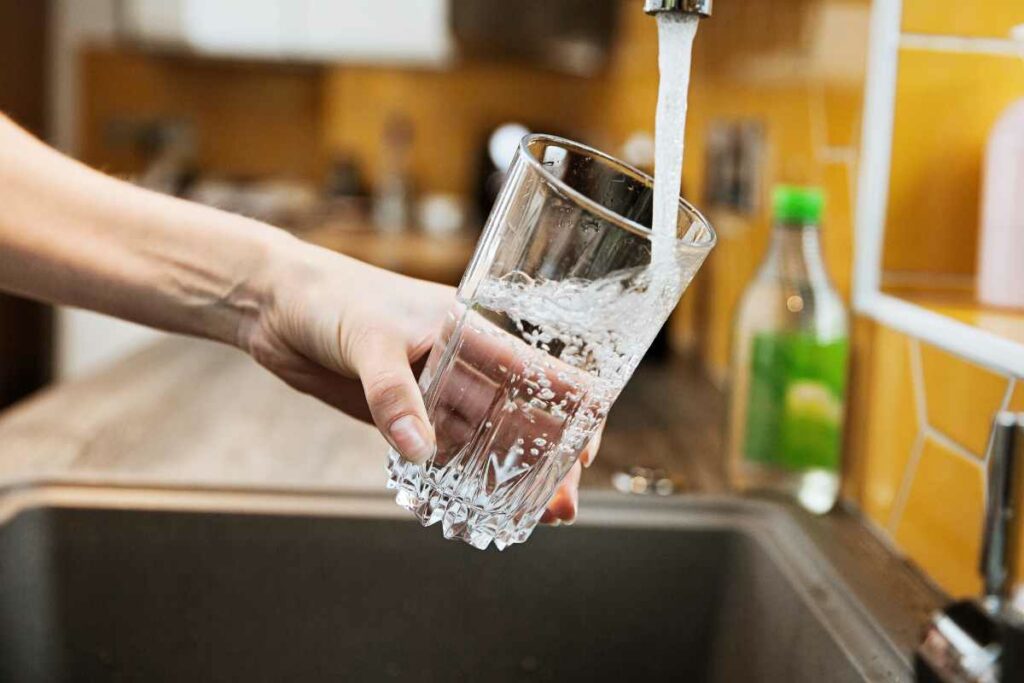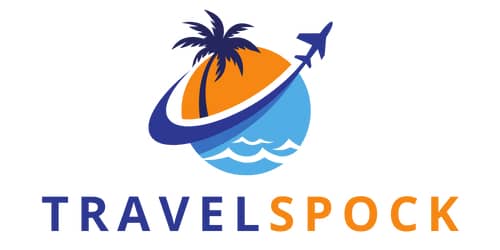When planning a trip to Croatia, one question that often comes up is whether or not the tap water is safe to drink.
As a traveler, it’s essential to know the quality of water in the country you’re visiting to avoid any potential health risks.
In general, tap water in Croatia is safe and drinkable, thanks to the country’s abundant water resources and strict regulations on water quality.

Croatian water quality ranks high among European countries, with its water supply being regularly tested and monitored.
While the water infrastructure in some urban areas may be dated, the overall quality of tap water still remains good.
It is worth noting that the tap water quality may vary slightly between different parts of the country, but this is not a cause for concern.
Key Takeaways
- Tap water in Croatia is generally safe and drinkable due to stringent regulations and monitoring
- The quality of tap water may slightly differ between regions, but this is not a cause for concern
- When visiting Croatia, be aware of any potential risks and follow local advice for the safest water consumption experience
Is Tap Water Safe in Croatia?
Yes, tap water in Croatia is generally safe to drink. The water quality is regularly tested and treated to ensure it meets necessary standards.
Croatia has low levels of water-related health risks. This is due to its comprehensive water treatment processes and strict regulations. As a traveler, you can confidently consume tap water in most Croatian cities and towns.
However, water safety can vary in some areas. It is always a good idea to ask locals or your accommodation provider about the water quality in the specific location you are visiting. In case of any concerns, purchasing bottled water is an acceptable alternative.
Keep in mind that Croatia is a popular tourist destination. Due to the high number of visitors during peak seasons, it’s essential to stay mindful of hygiene and cleanliness when consuming food and beverages.
Tap Water Quality in Major Cities
Quality in Zagreb
In Zagreb, the tap water is considered safe and drinkable. The city’s water supply undergoes regular testing to ensure it meets high standards.
Quality in Split
Split’s tap water is also safe to drink, as it comes directly from the protected Jadro River. The water quality here is regularly tested and treated to maintain its safety.
Quality in Dubrovnik
Although tap water in Dubrovnik is generally considered safe, some older buildings in the old town may have outdated plumbing systems. It’s a good idea to ask locals or staff at restaurants and bars about the water quality in specific locations.
Quality in Pula
Pula’s tap water is safe to drink and adheres to European standards for water quality. This makes it a reliable option to stay hydrated during your European itinerary.
Quality in Zadar
In Zadar, you can safely drink the city’s tap water. As with other Croatian cities, the water is checked regularly to ensure it meets safety requirements.
Water Sources and Supply in Croatia

Croatia boasts an abundance of water reserves, ranking 5th in Europe and 42nd in the world. The majority of its water sources come from groundwater and wells.
The Croatian water supply company is responsible for maintaining the public water supply system. This includes ensuring the water quality and safety for both locals and tourists.
When you visit Croatia, you can confidently drink the tap water, knowing it is safe. Their modern and well-developed water supply system offers reassurance for your peace of mind.
Tourist destinations like Dubrovnik and Split provide quality tap water for consumption. So, while exploring beautiful Croatia, don’t hesitate to quench your thirst with their clean and refreshing water.
Test and Inspection of Water Quality
Croatia is known for its high-quality tap water. The Croatian Institute of Public Health plays a crucial role in ensuring the safety and quality of drinking water.
Water quality in Croatia is continuously monitored and tested. Extensive testing ensures that impurities, bacteria, and viruses are eliminated from the water supply.
Chlorine is commonly used for disinfection. It effectively removes contaminants from the tap water. Nevertheless, you should be mindful of potential trace amounts of lead in older buildings’ plumbing systems.
Regular inspections help maintain the cleanliness and purity of water sources. Protecting your health is a top priority for the Croatian authorities.
Challenges and Potential Risks
One challenge you might encounter with tap water in Croatia is the presence of old pipes. These old pipes can lead to rust and water waste.
Water pollution is another concern in Croatia. Various contaminants such as pesticides and heavy rains can affect the water quality.
GMOs and energy production might also influence water quality. Be aware of any unusual odor or appearance in the tap water.
To ensure your safety, stay informed about local water conditions. Be confident that you’re knowledgeable about potential risks while enjoying your time in Croatia.
Water Treatment and Filtration Methods
When visiting Croatia, you’ll be glad to know that their tap water is safe to drink. The country has a well-developed water supply system managed by the Croatian Water Supply Company.
The key to clean water in Croatia is the treatment and filtration methods employed. These processes ensure impurities are removed, providing you with safe drinking water.
Water treatment in Croatia encompasses several processes. Common methods include coagulation, flocculation, sedimentation, and filtration. Coagulation and flocculation aid in removing suspended particles from raw water.
Sedimentation allows particles to settle at the bottom of water containers. The settled particles can then be easily removed.
Filtration further refines water by passing it through a porous medium, capturing any remaining impurities.
While Croatian tap water is safe, it’s crucial to be aware of the pipes that transport water in some areas. Older pipes might impact water quality. However, regular maintenance and improvements are done to maintain high standards.
Bottled Water Vs Tap Water
In Croatia, you can confidently drink tap water as it is safe for consumption.
The taste of tap water is acceptable, though some may prefer bottled water for its taste. Croatian tap water has a good pH level, ensuring it maintains a healthy balance, while mineral water offers varied pH and mineral content.
Mineral water brands in Croatia offer waters rich in minerals such as calcium and magnesium. These minerals not only contribute to taste, but also provide health benefits.
On the other hand, tap water meets necessary quality standards, but mineral content may vary between locations.
Plastic bottles are associated with negative environmental impacts due to production and waste. Choosing tap water helps reduce plastic waste and promotes sustainable water consumption. However, if bottled water is your preference, be sure to recycle the bottles responsibly.
Ultimately, whether you choose tap water or bottled water in Croatia depends on your personal preferences.
Both options provide safe, clean water for hydration, with tap water offering an eco-friendly choice and bottled water offering diverse mineral content.
Regional Water Quality

Water in Southern Croatia
In Southern Croatia, the tap water is generally safe to drink, thanks to modern water supply systems and proper treatment. The Jadro River is one of the main sources of clean drinking water in the region.
Water in Lika Region
In Lika County, home to the Plitvice Lakes National Park, the water quality is high. Here, you can enjoy pristine water sourced from natural springs.
Water in Croatian Islands
For travelers visiting Croatia’s beautiful islands like Hvar, you’ll find that tap water is usually safe to drink. However, during peak tourist season, some islands may experience water shortages and require the use of bottled water.
Water in Istria
In Istria, a region known for its beaches and charming towns, the water quality is typically excellent. This area benefits from a well-developed water supply system, ensuring clean and safe tap water for locals and tourists alike.
Private Wells and Their Safety
When visiting Croatia, you might come across private water wells. It’s crucial to know if this water is drinkable. Most Croatian tap water is considered safe to consume, thanks to the country’s modern and well-developed water supply system.
However, private wells may present different water quality. When it comes to these sources, exercise caution. You can’t guarantee the same level of safety as municipally treated water.
To ensure the water you’re consuming is potable, opt for bottled or disinfected water instead. This can save you from potential health risks.
Stay confident knowing you’re making the right choice for your health while traveling in Croatia.
Final Tips and Advice
When traveling to Croatia, you can confidently drink the tap water as it is considered safe and of high quality. However, the taste may slightly vary depending on the filtration process and water source from region to region.
It is always a good idea to stay informed about any updates or advisories regarding tap water safety. For this, follow announcements from local authorities or check reliable sources before your trip.
If you’re unsure about the tap water quality in a specific area, opt for bottled water instead. Croatia has a wide variety of bottled waters available at reasonable prices.
Keep in mind that in some remote locations, water supply might not be as reliable or consistent. Therefore, it’s wise to consult with locals or your hosts about the water quality in such areas.
When it comes to legal and financial advice while traveling, make sure to adhere to local laws and regulations. Also, familiarize yourself with the local currency and payment methods to avoid any issues.
By following these tips, you can have a safe and enjoyable trip while drinking water in Croatia. Enjoy your stay!
Frequently Asked Questions

Is tap water safe to drink in Dubrovnik?
Yes, the tap water in Dubrovnik is considered safe for consumption. The city’s water quality meets the necessary standards.
Can one consume Hvar’s tap water?
Indeed, you can drink tap water on the island of Hvar without any concerns. The water quality is up to the mark.
Is it okay to drink tap water in Rovinj?
Rovinj’s tap water is deemed safe to drink as it meets necessary requirements. You can consume it without worries.
How safe is Zadar’s tap water?
Zadar’s tap water is considered safe for drinking as well. The city maintains high standards in water quality.
Can tap water from Brac be consumed?
Yes, tap water from the island of Brac is safe for consumption. The water comes from the river Cetina and meets necessary safety standards.
Is drinking tap water in Split advisable?
Split’s tap water is safe for drinking, and you can consume it without any hesitation. The city ensures its water quality.
You may also like
-
Afrikat: All-inclusive Luxury Catamaran in Gran Canaria Spain
-
Finding the Best Beaches in Bonaire Near Cruise Port Stops
-
What Wind Speed Is Too Windy For The Beach?
-
Flying Virgin Atlantic: Do They Provide Headphones?
-
Maldives Scuba Diving: Explore Underwater Paradise
-
Essential Driving in France Kit: What Drivers Need to Stay Safe and Legal
-
How to live on a Cruise Ship Cheaply



